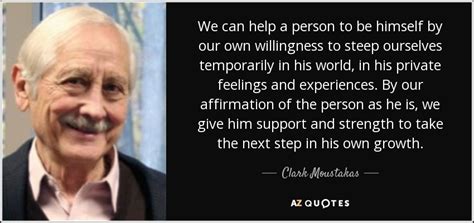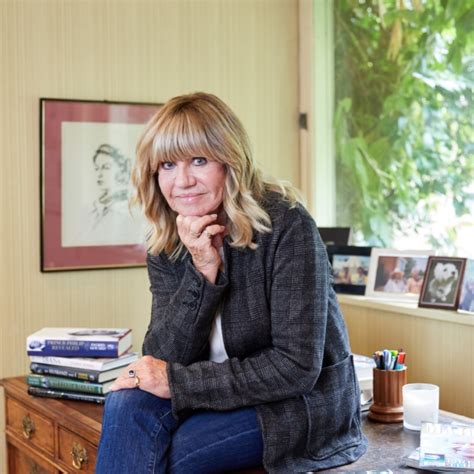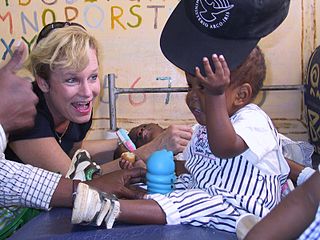A Quote by Herbert Otto Gille
Change and growth take place when a person has risked himself and dares to become involved with experimenting with his own life.
Related Quotes
When it comes to his sons, it would be easy to think that the macho Duke of Edinburgh has most in common with Prince Andrew. After all, it was Andrew, his third-born son, who risked his life in the Falklands war as a Royal Navy helicopter pilot - just as Philip had risked his own as a naval officer during World War II.
I believe that Jesus would have given His life for just one person. Jesus emptied Himself, He humbled Himself and He so yielded Himself to His Father's love that He had no ambition of His own. He was not looking to build an empire, He did not want praise or adulation or to impress people with who or how many followed Him. He stopped over and over again for just one person, for just one life.
There is a myth, sometimes widespread, that a person need only do inner work...that a man is entirely responsible for his own problems; and that to cure himself, he need only change himself....The fact is, a person is so formed by his surroundings, that his state of harmony depends entirely on his harmony with his surroundings.
You risked your life, but what else have you ever risked? Have you risked disapproval? Have you ever risked economic security? Have you ever risked a belief? I see nothing particularly courageous about risking one's life. So you lose it, you go to your hero's heaven and everything is milk and honey 'til the end of time. Right? You get your reward and suffer no earthly consequences. That's not courage. Real courage is risking something that might force you to rethink your thoughts and suffer change and stretch consciousness. Real courage is risking one's clichés.
Leto turned a hard stare at Kynes. And Kynes, returning the stare, found himself troubled by a fact he had observed here: This Duke was concerned more over the men than he was over the spice. He risked his own life, and that of his son to save the men. He passed off the loss of a spice crawler with a gesture. The threat to men's lives had him in a rage. A leader such as that would command fanatic loyalty. He would be difficult to defeat. Against his own will and all previous judgements, Kynes admitted to himself: I like this Duke.
First of all, although men have a common destiny, each individual also has to work out his own personal salvation for himself in fear and trembling. We can help one another to find the meaning of life no doubt. But in the last analysis, the individual person is responsible for living his own life and for "finding himself." If he persists in shifting his responsibility to somebody else, he fails to find out the meaning of his own existence. You cannot tell me who I am and I cannot tell you who you are. If you do not know your own identity, who is going to identify you?
Man's main task in life is to give birth to himself, to become what he potentially is. The most important product of his effort is his own personality. One can judge objectively to what extent a person has succeeded in his task, to what degree he has realized his potentialities. If he has failed in his task, one can recognize this failure and judge it for what it is - a moral failure.
The great secret of morals is love; or a going out of our nature, and an identification of ourselves with the beautiful which exists in thought, action, or person, not our own. A man, to be greatly good, must imagine intensely and comprehensively; he must put himself in the place of another and of many others; the pains and pleasure of his species must become his own. The great instrument of moral good is the imagination.
































